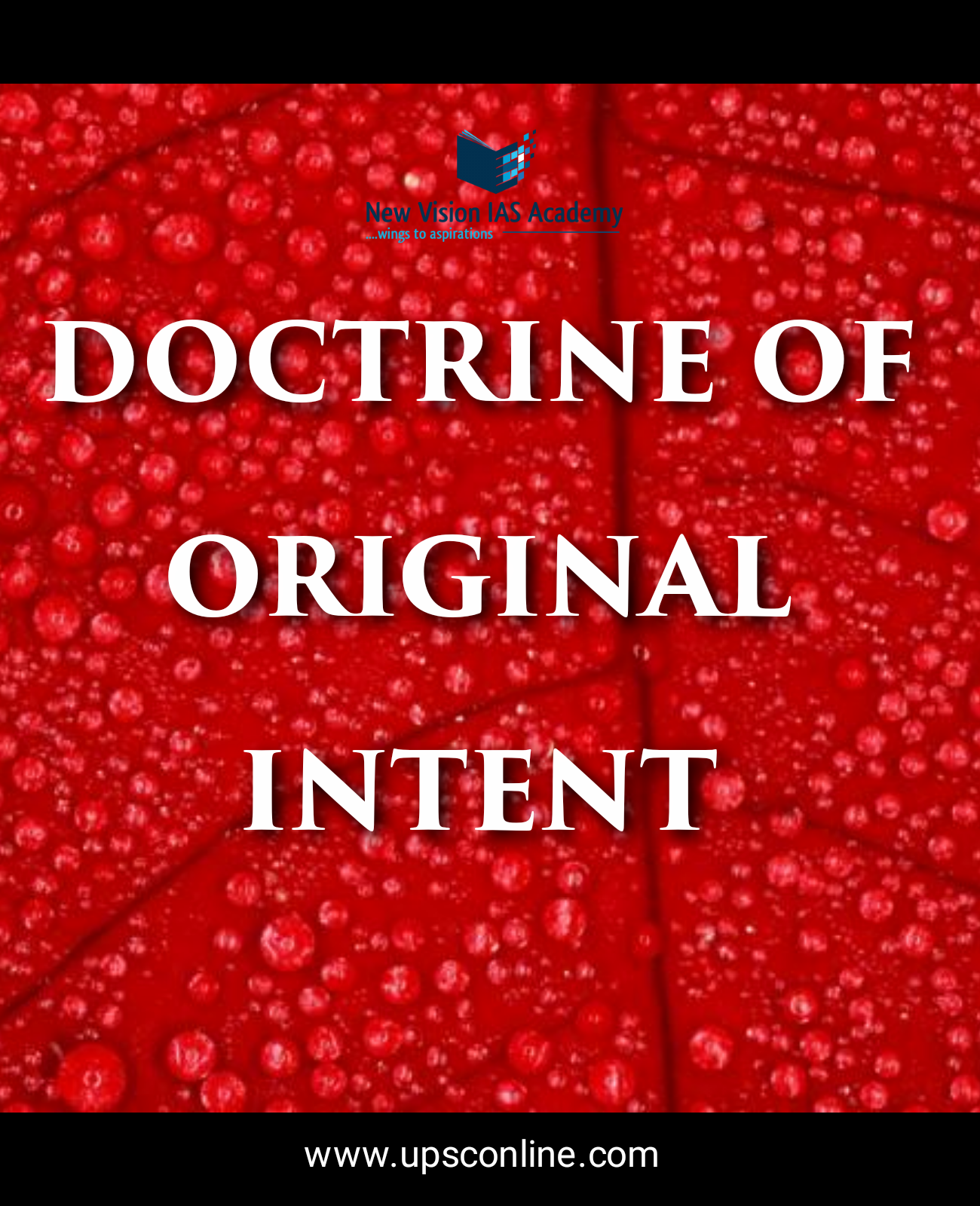DOCTRINE OF ORIGINAL INTENT
The theory of interpretation by which judges attempt to ascertain the meaning of a particular provision of the constitution by determining how the provision was understood at the time it was drafted and ratified .It is popularly called as originalism or inentionalism.
This doctrine is applied by the courts during the proceedings of judicial review. Originalists contend that judges deviated from the original understanding of a constitutional provision are forced to replace that understanding with their own subjective sympathies, social preferences, & notions of reasonableness.
The ‘original intent’ approach is based on the intent of the framers of the Constitution when they drafted the text. The originalism as a method of constitutional interpretation has been subject to serious criticism for being too rigid and inflexible.
The ‘original intent’ approach is based on the intent of the framers of the Constitution when they drafted the text. The originalism as a method of constitutional interpretation has been subject to serious criticism for being too rigid and inflexible.
The Canadian Supreme Court, while rejecting originalism, said that such a method would mean that “…the rights, freedoms and values embodied in the Charter in effect become frozen in time to the moment of adoption with little or no possibility of growth, development and adjustment to changing societal needs.”
Originalism is an umbrella term for interpretative methods that hold to the “fixation thesis” The term “originalism” commonly used since the middle 1980s, and was coined by Paul Brest in The Misconceived Quest for the Original Understanding.
Originalism is a theory of interpretation, not construction. James Madison, one of the drafters of the American Constitution, said that the future interpretation of the document should not rest primarily on the intentions of the framers, but on the intentions of the people who, through their state representatives, ratified the Constitution.
Alexander Hamilton, the American federalist , looked to the Constitution itself, believing that the text should control its interpretation
The framers of a constitution who want to make it a charter of liberties and not just a set of constitutive rules face a difficult choice.
Originalism is a family of constitutional theories, but two ideas are common to almost all versions of originalism. The first idea is that the meaning of the constitutional text is fixed: the linguistic meaning of the words and phrases does not change over time. The second idea is that the original meaning of the constitutional text is binding: judges and officials should consider themselves constrained by the text.
Textualism is a mode of legal interpretation that focuses on the plain meaning of the text of a legal document.
The doctrine internationally exists curbing the judicial expansion of constitutionally protected rights through strict adherence to the original meaning of the text, while simultaneously rejecting reference to contemporary values as a perversion of the rule of law, democracy and the Constitution itself.
Originalism is most commonly defended as method of judicial restraint.



0 Comments